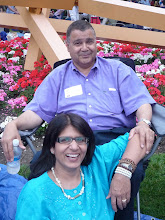Traveling through Europe on many occasions, especially in the early 1970’s I had always been warned to be careful of “gypsies”. Imagine my surprise as an Indian-American when I learned that these “gypsies” now known throughout Europe as Roma did in fact migrate from the Indian subcontinent anywhere from four to eight centuries ago! My first reaction was disbelief – I had never learned about any such migration. I knew about the migrations to textile mills of UK, the railroad workers in East Africa, even farmers migrating to the Western coasts of USA and Canada, to the Fiji Islands and the Caribbean as well as the south East Asia in the last two centuries.
Side Note: I surmised this must have taken place so long ago that there would remain only traces of their ethnic lineage among them – intermingled with the local cultures in which they had adapted themselves. No different really from the three generations in America from the subcontinent who have mainstreamed into the overarching American culture with their grandchildren already of mixed ethnicities. Here, everyone is defined by their ethnicity, so much so that when I was assembling a Macedonian panel, I was asked if I was excluding Albanians, Vlach, Roma, etc. I used Macedonian the way I use American – nationality defined by political boundaries and not ethnicities.
Back on track: Here in Macedonia the Roma are struggling with poverty and lack of education, many in the big cities resorting to thievery and unskilled manual labor to make ends meet. Isolated from these problems as I am living in a small city in central Macedonia, I was charmed when I met a young Roma girl Jansula, and her mother Susana in the little village of approximately 30 inhabitants close to the city of Probistip last weekend. The young mother’s reaction to my skin color was one of delight and expressed of course, by a desire to join her and her daughter for a cup of coffee in her home. Needless to say I am always ready for that umpteenth cup of coffee and intrigued by this opportunity to connect on a personal level.
Jansula’s married sister and her brother worked and lived in Germany, while her father worked in a city called Kriva Palanka. Jansula’s uncle from Germany had sent her a ‘dress up’ Indian skirt and top with matching bracelets, which she gladly changed into to model for me. Susana served us the traditional coffee accompanied with ‘sok’ (Macedonian for soda pop) together with a tasty corncake and a snack – which eerily reminded me of an Indian dessert – made with flour, butter and nuts. I am disappointed at myself for forgetting to take a picture of the dessert.
It was heartwarming to experience her hospitality and the feeling I had that this family was living a little village without facing the discrimination common in big cities. Roberto and Jansula join me at the local restaurant, store, senior center and teen hangout all rolled into one public building.
Wednesday, May 26, 2010
Subscribe to:
Comments (Atom)







